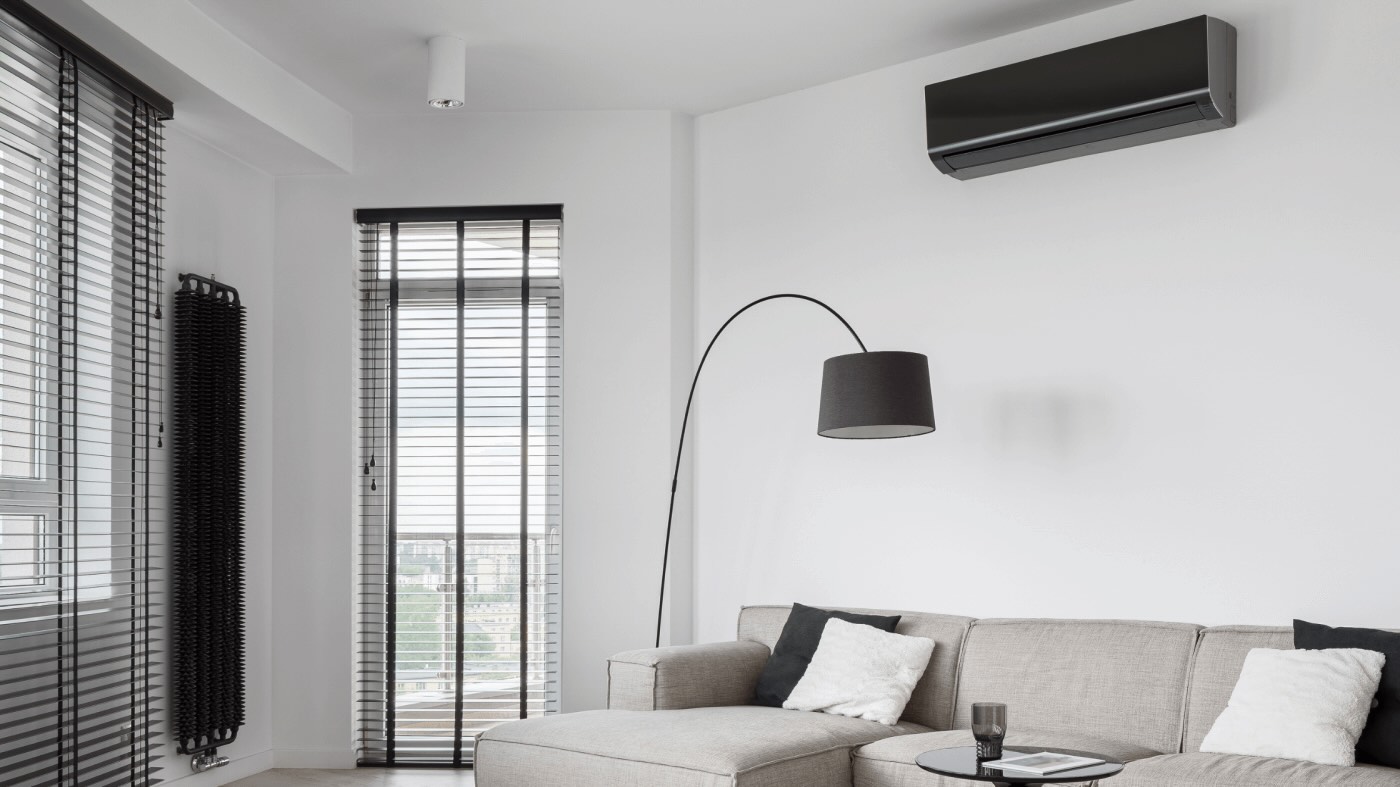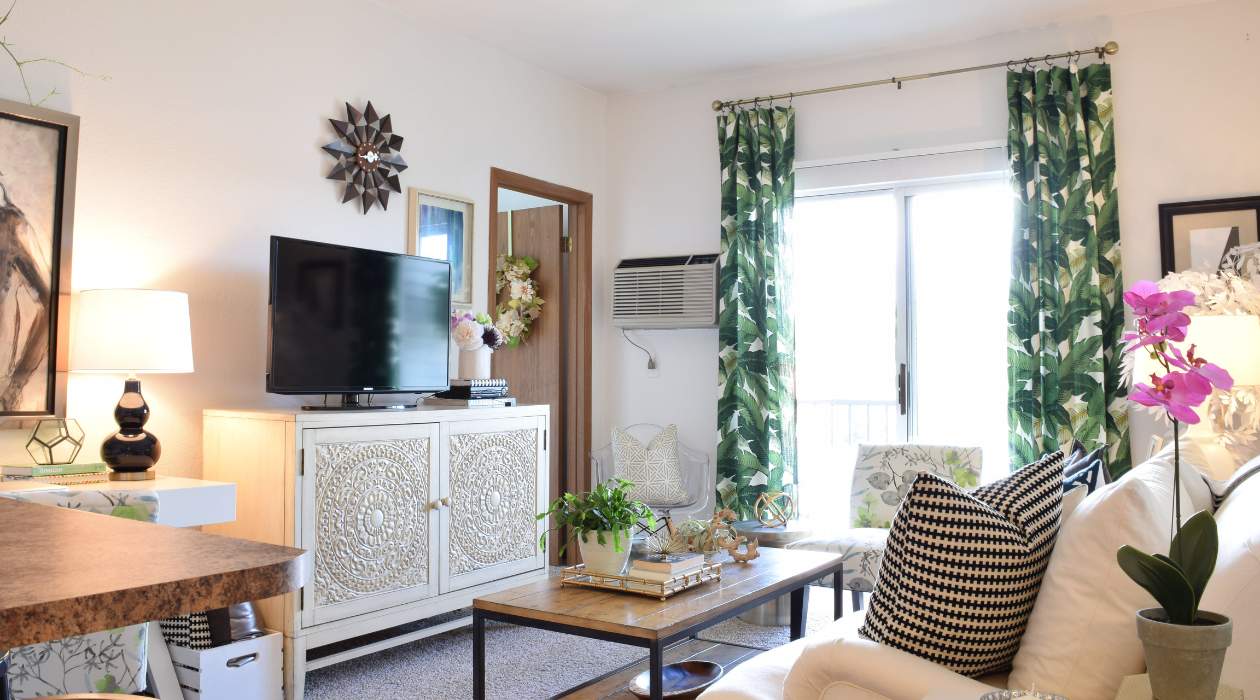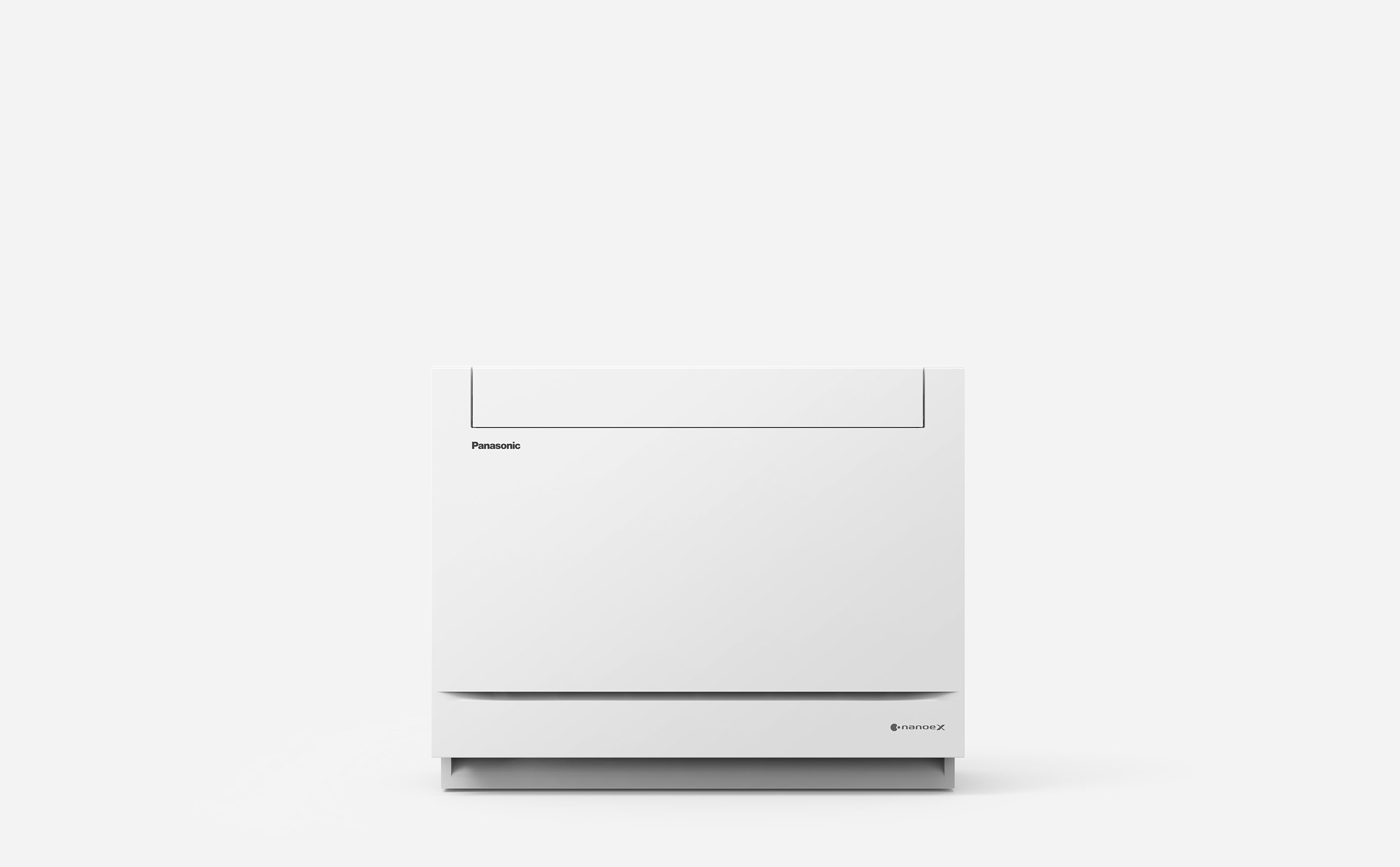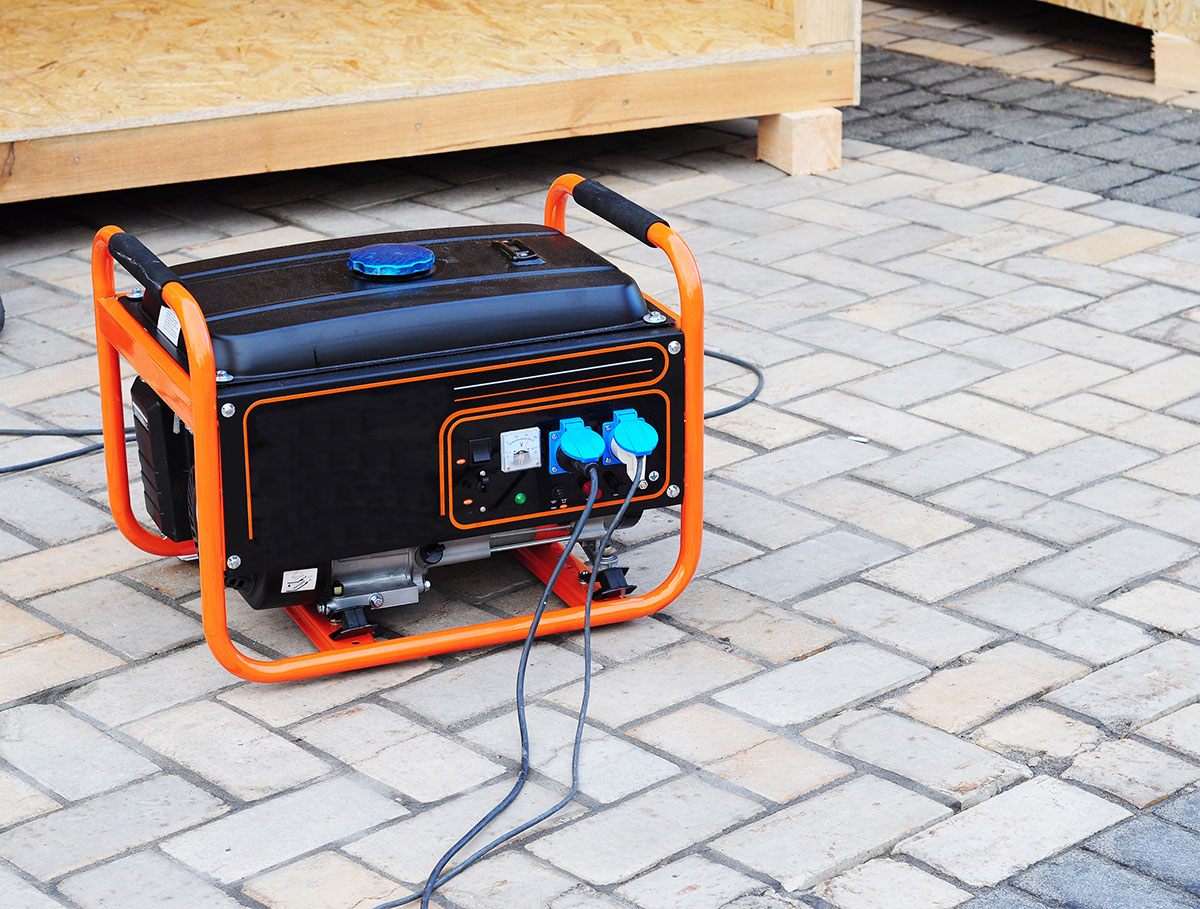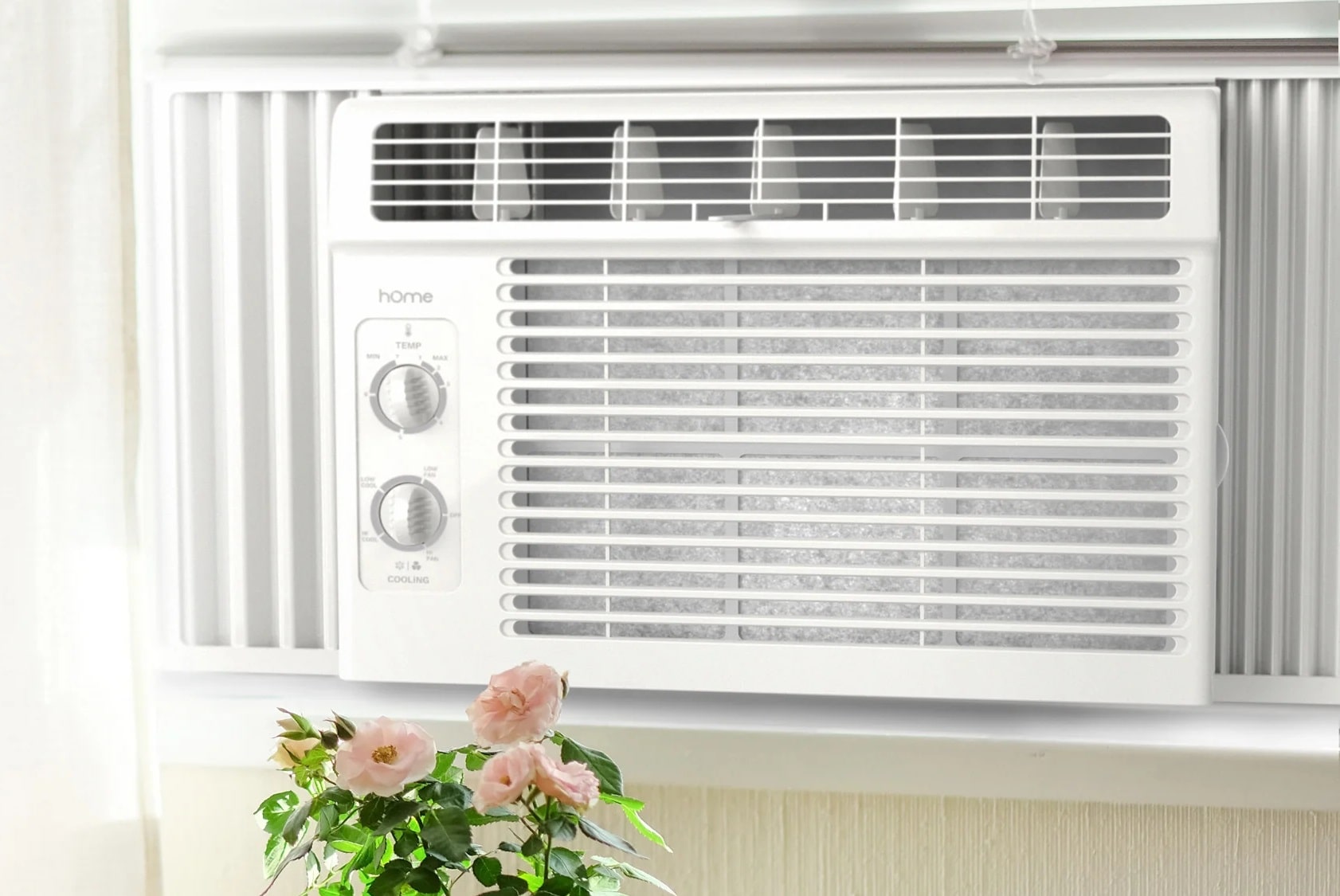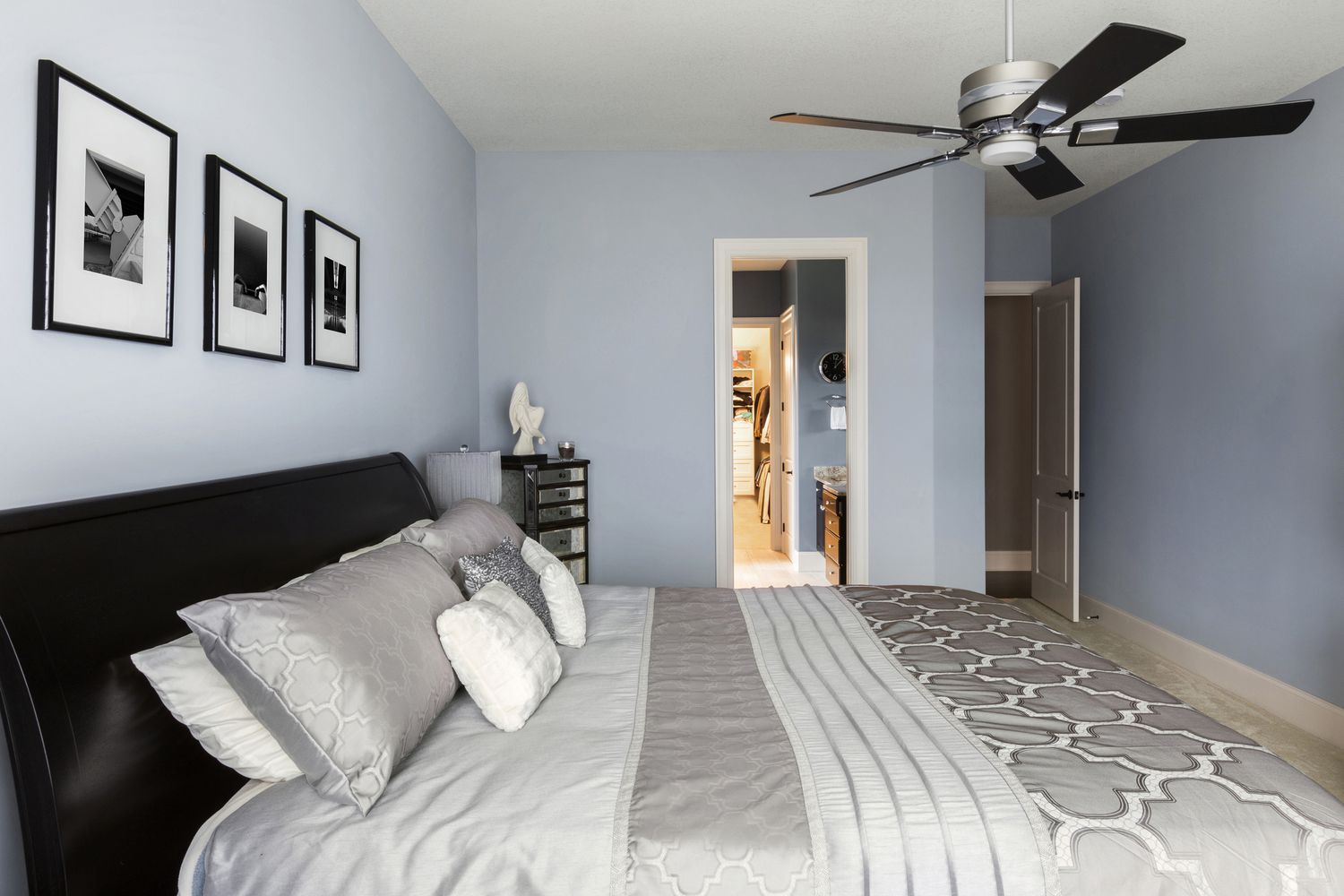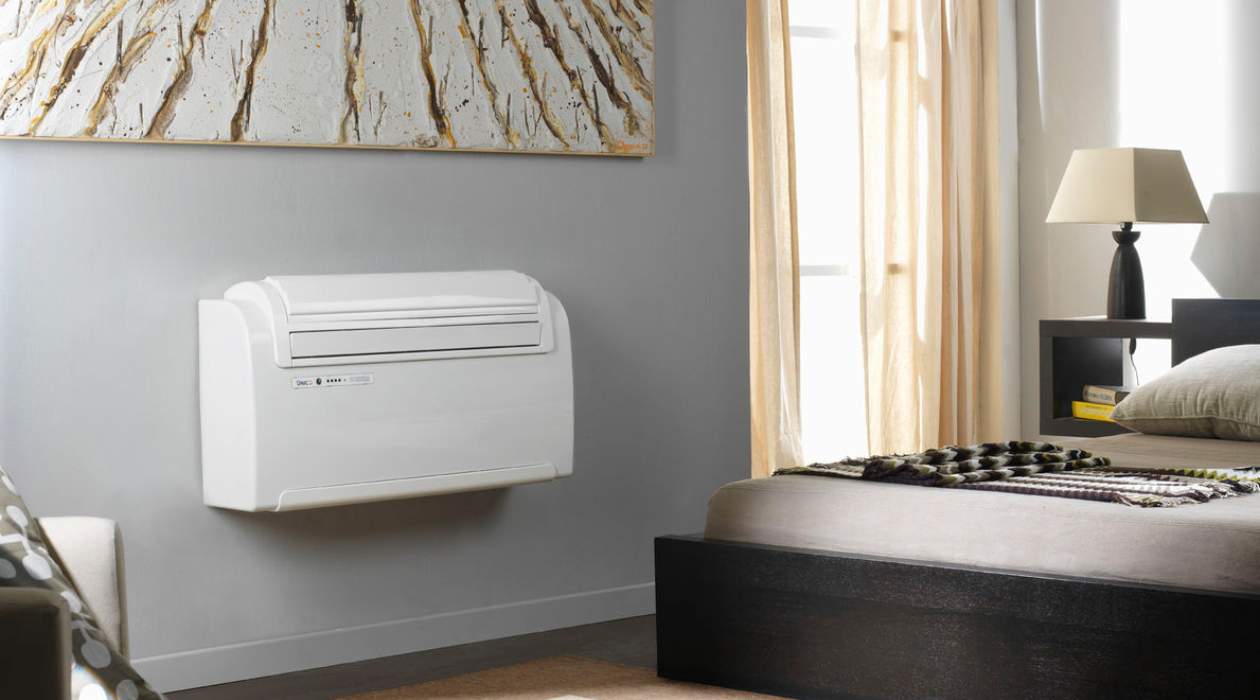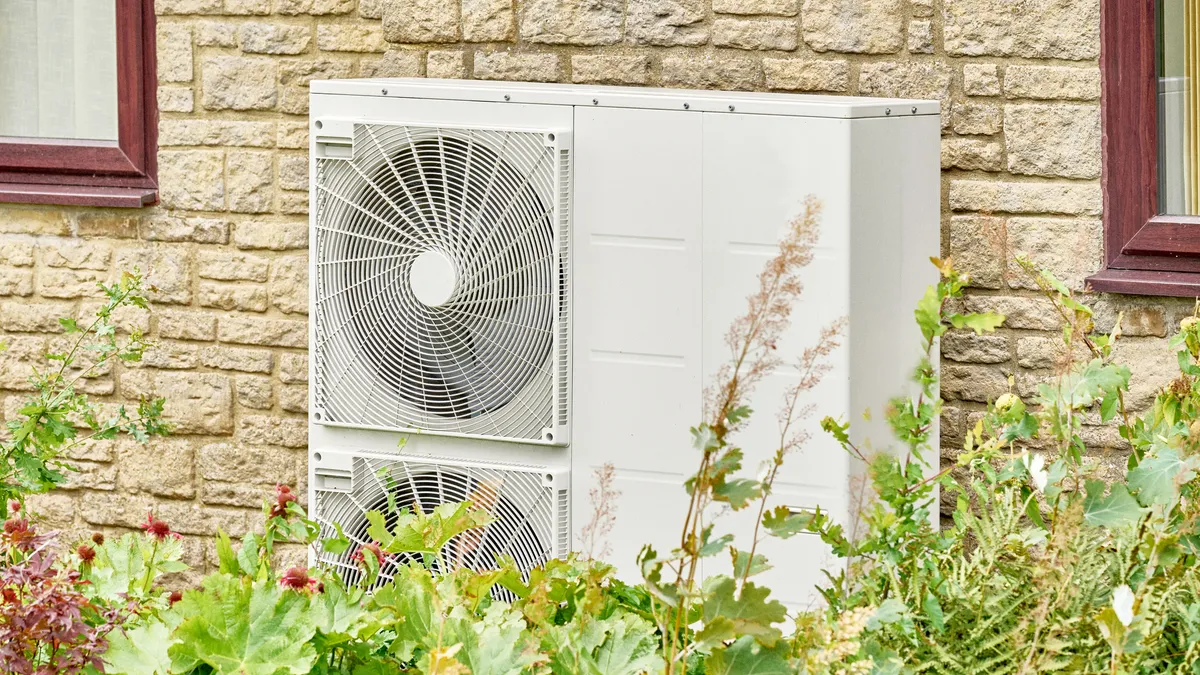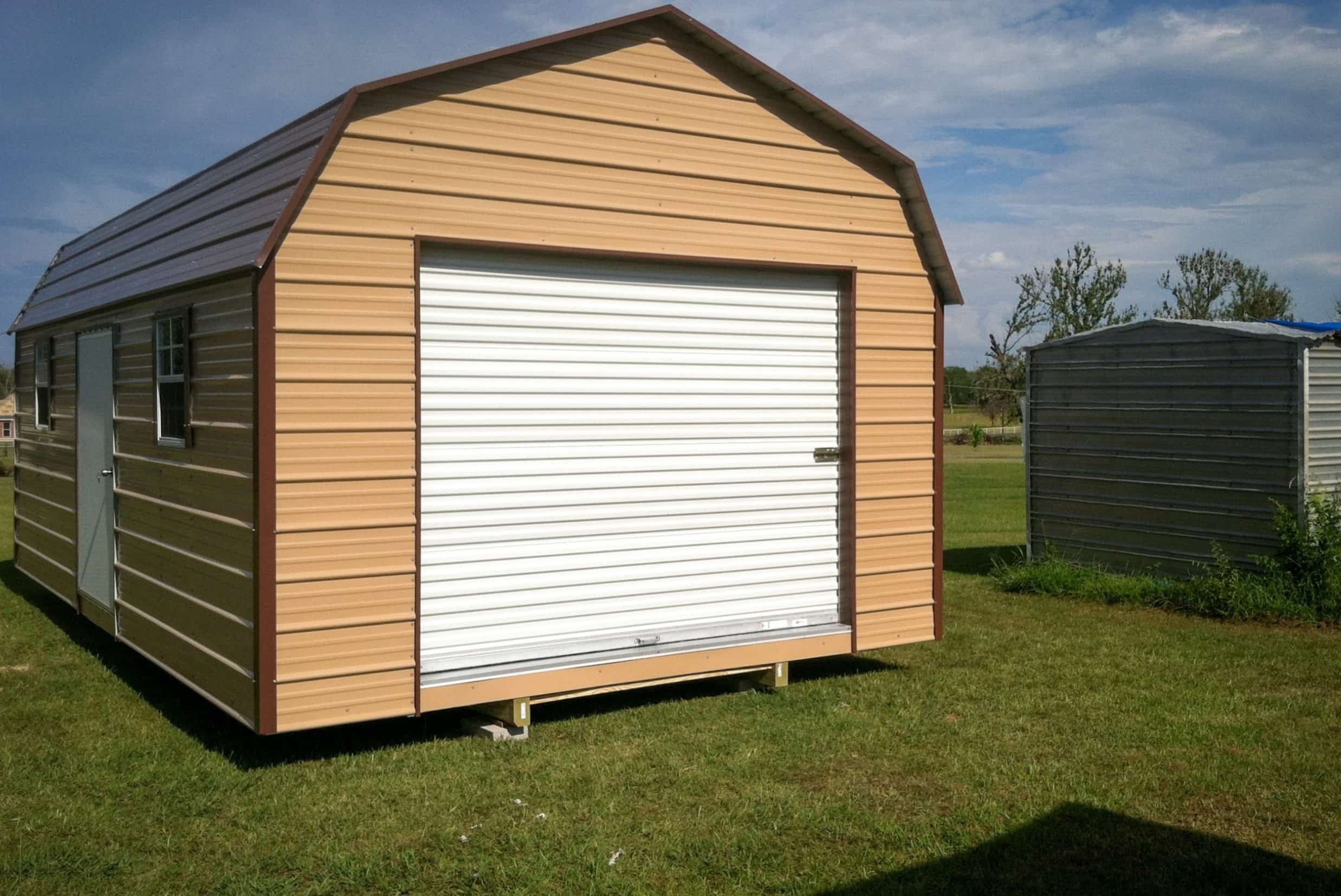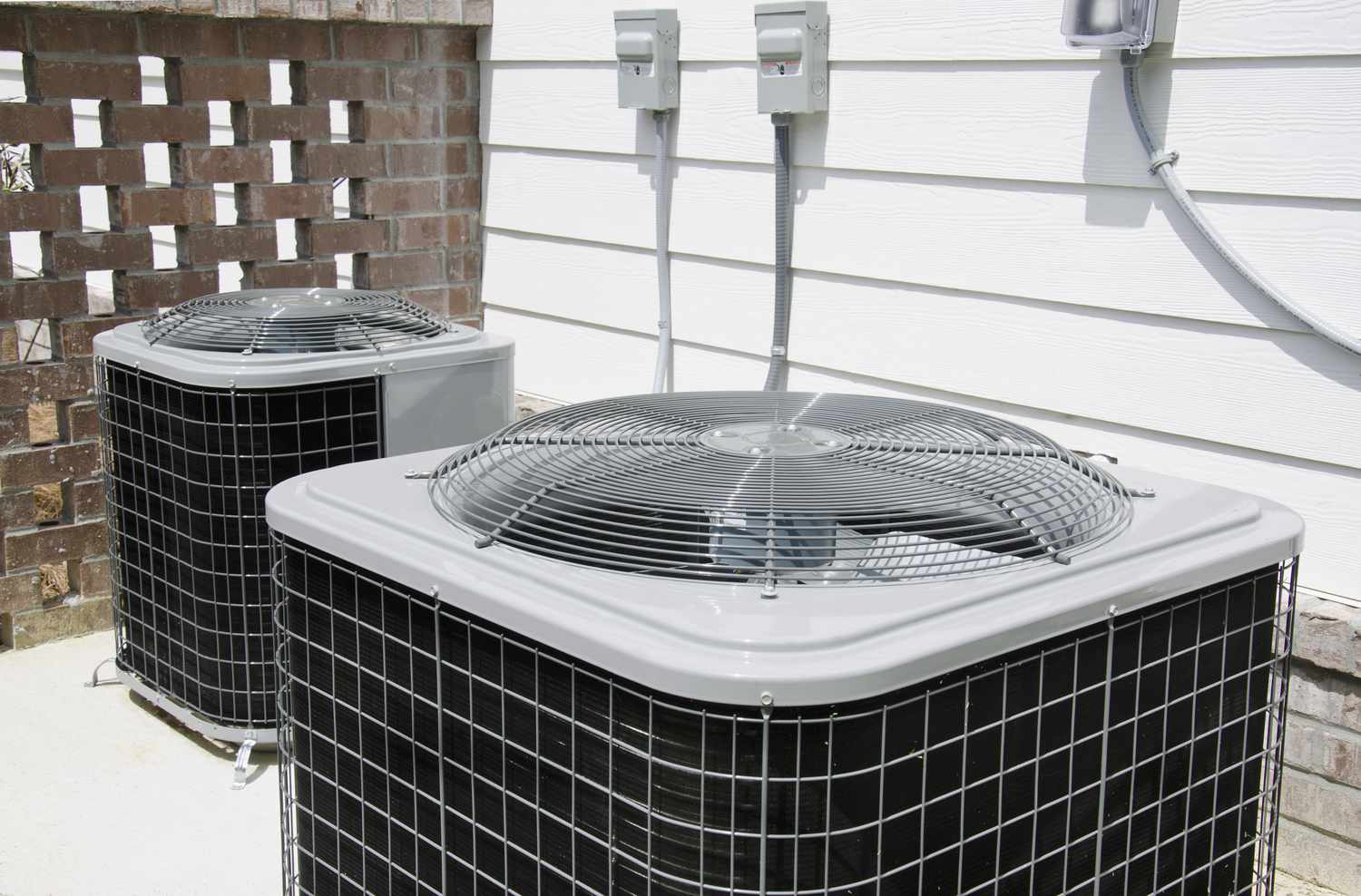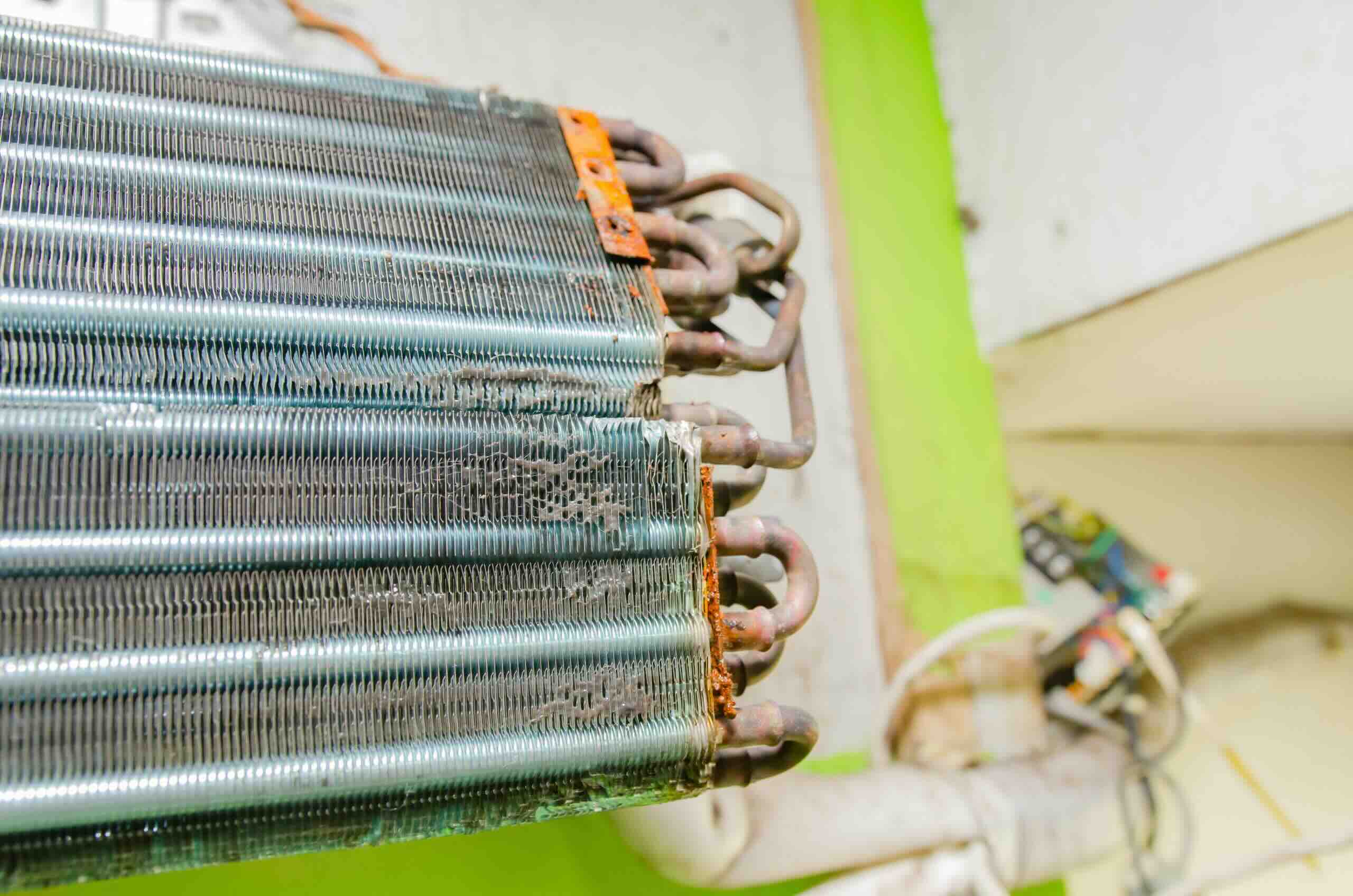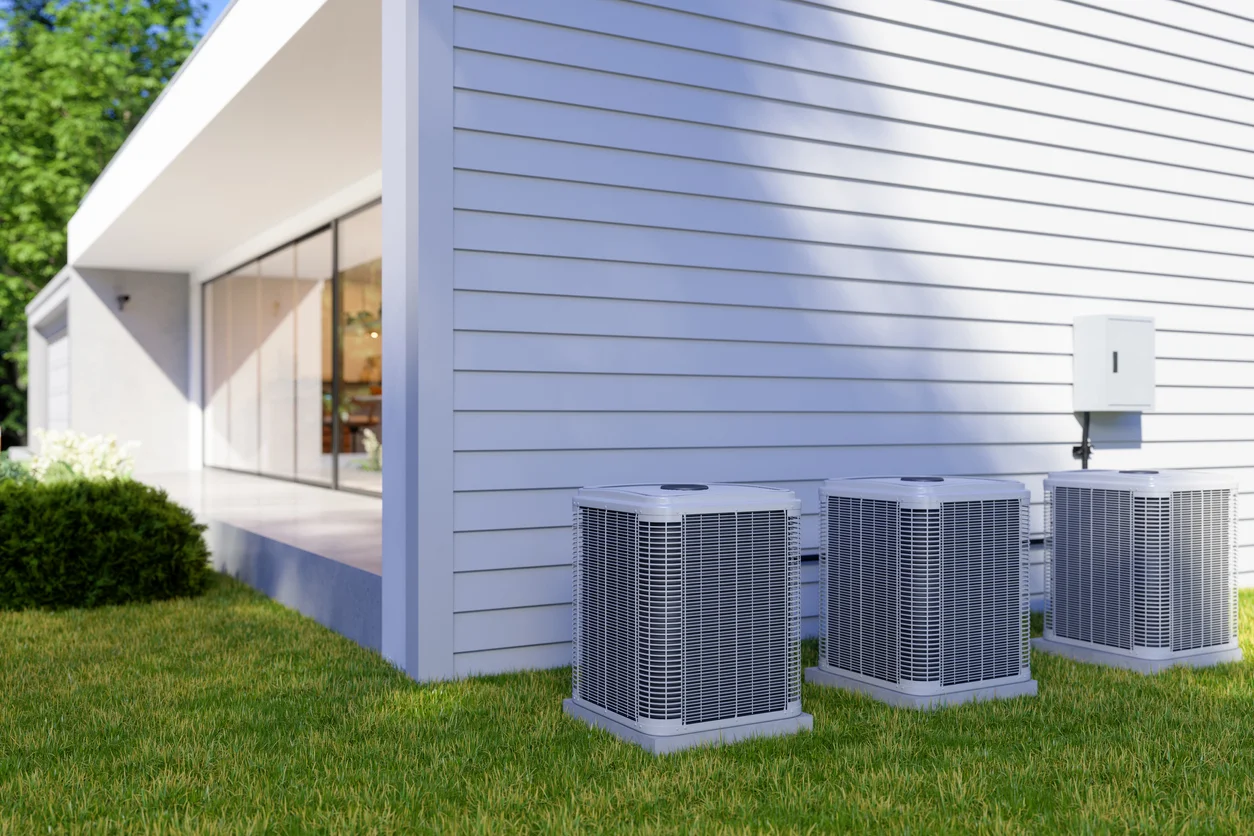Home>Home Maintenance>What Size Air Conditioner Is Needed For A Bedroom
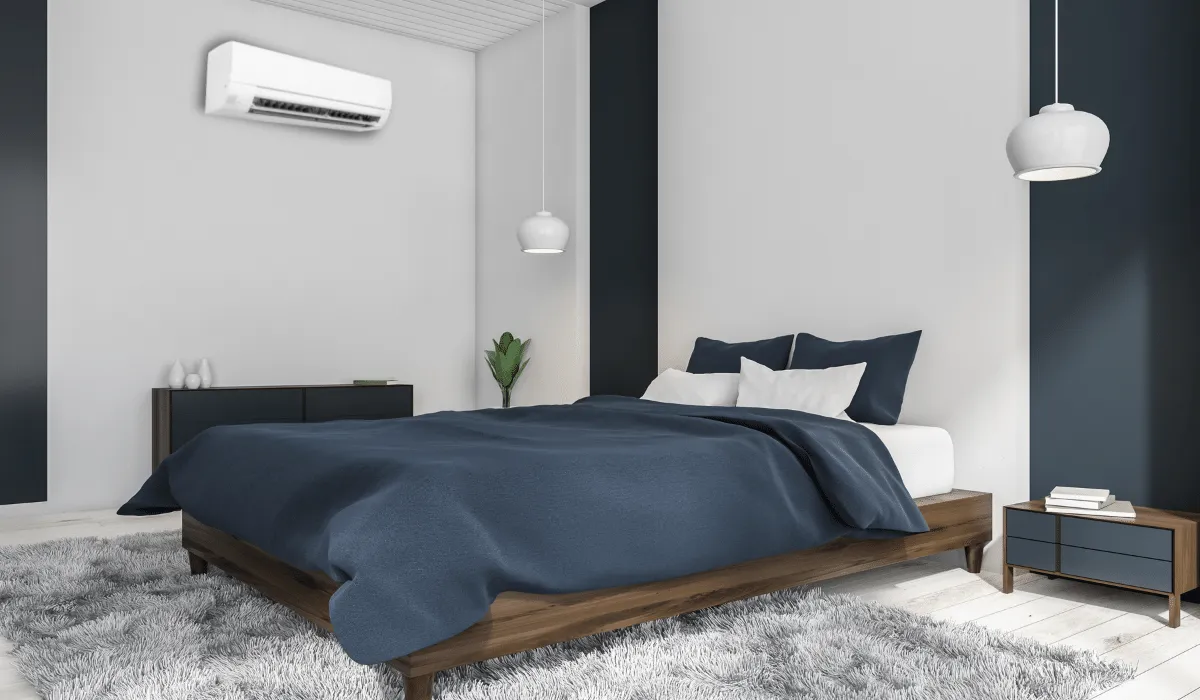

Home Maintenance
What Size Air Conditioner Is Needed For A Bedroom
Modified: August 23, 2024
Find out the ideal size of an air conditioner for your bedroom with our comprehensive guide. Achieve optimal home maintenance and comfort.
(Many of the links in this article redirect to a specific reviewed product. Your purchase of these products through affiliate links helps to generate commission for Storables.com, at no extra cost. Learn more)
Introduction
Welcome to our comprehensive guide on choosing the right size air conditioner for your bedroom. As the temperatures rise and the summer heat becomes unbearable, having a properly sized air conditioner is essential for ensuring a comfortable and enjoyable sleep environment.
While many factors come into play when selecting the right air conditioner for your bedroom, the most crucial one is determining the appropriate cooling capacity or BTU (British Thermal Unit) for the space. By considering factors such as the square footage of the room, insulation, window size, and desired temperature, you can make an informed decision and invest in an air conditioner that will effectively cool your bedroom.
In this article, we will delve into the different aspects you should consider when choosing an air conditioner for your bedroom. We will discuss the square footage of the room, the importance of insulation and energy efficiency, window size and placement, and the desired temperature and cooling capacity. By utilizing these factors, we can calculate the appropriate BTU for your bedroom and recommend the ideal air conditioner size.
So, whether you’re remodeling your bedroom, moving to a new home, or simply upgrading your air conditioning system, read on to discover the essential tips and information you need to make an informed decision on choosing the right size air conditioner for your bedroom.
Key Takeaways:
- Choose the right air conditioner size for your bedroom by considering square footage, insulation, window size, and desired temperature. A properly sized unit ensures a comfortable sleep environment even during hot summer nights.
- Measuring your bedroom’s square footage is crucial for determining the appropriate cooling capacity. Consider factors like insulation, window size, and personal comfort preferences to select the ideal air conditioner size.
Factors to Consider when Choosing an Air Conditioner
When it comes to selecting the right air conditioner for your bedroom, there are several important factors to consider. These factors will help you determine the appropriate size and cooling capacity needed to effectively cool your space and create a comfortable environment for sleeping. Let’s explore these factors in detail:
- Square Footage of the Bedroom: The size of your bedroom is a crucial factor in determining the BTU required for an air conditioner. The larger the room, the higher the BTU needed to cool it efficiently. Measure the length and width of your bedroom, and multiply them to get the square footage. This will serve as a starting point for determining the appropriate cooling capacity.
- Insulation and Energy Efficiency: The insulation of your bedroom plays a significant role in the overall cooling efficiency. Proper insulation helps to trap the cool air inside the room and prevent unwanted heat exchange with the environment. Check for any air leaks, ensure proper insulation in walls and windows, and consider investing in energy-efficient windows and doors to improve insulation.
- Window Size and Placement: The size and placement of windows in your bedroom can impact the cooling requirements. Large windows or windows that receive direct sunlight may increase the heat load, requiring a higher cooling capacity. Additionally, consider the location of your air conditioner, as placing it near or under a window can result in better airflow and more efficient cooling.
- Desired Temperature and Cooling Capacity: Determine the desired temperature at which you want to maintain your bedroom. If you prefer a lower temperature or live in a hot and humid climate, you may need a higher cooling capacity to achieve and maintain the desired temperature effectively. Keep in mind that excessively low temperatures may lead to overworking your air conditioner and higher energy consumption.
By considering these factors, you can ensure that you select an air conditioner that is both suitable for your bedroom size and capable of providing optimal cooling comfort throughout the night. In the next sections, we will delve deeper into the calculations involved in determining the appropriate BTU for your bedroom and provide recommendations for air conditioner sizes based on different square footages.
Square Footage of the Bedroom
The square footage of your bedroom is a key factor in determining the appropriate size of an air conditioner. Measuring the length and width of the room and multiplying them will give you the square footage. This measurement serves as a starting point for determining the cooling capacity, or BTU, required to effectively cool the space.
Generally, the larger the square footage, the higher the BTU needed. A larger room will require more cooling capacity to effectively cool the entire area. On the other hand, smaller bedrooms will require less BTU to maintain a comfortable temperature. It’s important to note that undersized air conditioners may struggle to cool larger rooms, while oversized units may cycle on and off frequently, resulting in inconsistent temperatures and higher energy consumption.
Here is a general guideline for BTU requirements based on bedroom square footage:
- 100 to 300 square feet: 5,000 to 7,000 BTU
- 300 to 450 square feet: 8,000 to 10,000 BTU
- 450 to 550 square feet: 10,000 to 12,000 BTU
- 550 to 700 square feet: 12,000 to 14,000 BTU
Keep in mind that these recommendations can vary based on other factors, such as insulation, window size, and desired temperature. Additionally, local climate and heat load from other sources, such as electronics or direct sunlight, should also be taken into consideration. Consulting with an HVAC professional can provide further guidance based on your specific needs and conditions.
Now that we have established the importance of considering the square footage when choosing an air conditioner, let’s move on to the next factor: insulation and energy efficiency.
Insulation and Energy Efficiency
Insulation and energy efficiency play a significant role in the overall cooling efficiency of your bedroom. Proper insulation helps trap the cool air inside the room and prevents unwanted heat exchange with the surrounding environment. By improving insulation, you can maximize the effectiveness of your air conditioner and minimize energy waste.
Here are some key considerations when it comes to insulation and energy efficiency:
- Air Leaks: Check for any air leaks in your bedroom, such as gaps around windows, doors, or electrical outlets. Sealing these leaks with caulk or weatherstripping can prevent warm air from entering and cool air from escaping, improving the overall efficiency of your air conditioner.
- Wall Insulation: Insulation in the walls helps to regulate the temperature inside the room. Well-insulated walls can prevent heat transfer between the interior and exterior, keeping your bedroom cooler in the summer. Consider adding insulation to the walls if your bedroom lacks proper insulation.
- Window Insulation: Windows are a significant source of heat gain in a room. Investing in energy-efficient windows can greatly improve insulation and reduce heat transfer. Look for windows with low-E coatings, double-glazed or triple-glazed glass, and weatherstripping for optimal energy efficiency.
- Door Insulation: Similar to windows, doors can contribute to heat gain or loss. Make sure your bedroom door is properly sealed with weatherstripping to prevent drafts and maintain a consistent temperature.
- Energy-Efficient Appliances: Consider the heat load generated by electronics and appliances in your bedroom. Energy-efficient devices produce less heat and can help reduce the cooling requirements of your air conditioner.
Improving insulation and energy efficiency not only enhances the performance of your air conditioner but also reduces energy consumption and lowers utility bills. It’s important to remember that even the most efficient air conditioner will struggle to cool a poorly insulated room. By combining proper insulation with an appropriately sized air conditioner, you can create an energy-efficient and comfortable sleep environment.
Next, we’ll explore the importance of window size and placement when selecting an air conditioner for your bedroom.
Window Size and Placement
The size and placement of windows in your bedroom can have a significant impact on the cooling requirements and effectiveness of your air conditioner. Factors such as window size, orientation, and the amount of direct sunlight they receive can influence the heat gain or loss in your room.
Consider the following factors when it comes to window size and placement:
- Window Size: Larger windows allow more natural light to enter the room but also increase the potential for heat gain. If you have large windows, you may need a higher cooling capacity to offset the additional heat load. Smaller windows, on the other hand, may require less cooling capacity. Take into account the size of your windows when determining the appropriate BTU for your air conditioner.
- Window Orientation: The direction your windows face can impact the amount of direct sunlight they receive. South and west-facing windows tend to receive the most sunlight and can significantly increase the heat load in your room. If your bedroom has windows facing these directions, you may need a higher cooling capacity to counteract the additional heat gain.
- Window Placement: The placement of your air conditioner in relation to your windows can affect the airflow and overall cooling efficiency. Placing the air conditioner near or under a window ensures that cool air is directed into the room and warm air is expelled outside. This positioning maximizes the air conditioner’s effectiveness and helps distribute cool air evenly throughout the bedroom.
It’s worth noting that window treatments, such as blinds, curtains, or shades, can help reduce heat gain during the day. Opt for light-colored and reflective materials that can reflect the sunlight and minimize heat transfer through the windows.
By considering window size, orientation, and placement, you can make informed decisions about the appropriate cooling capacity and placement of your air conditioner. Next, we’ll discuss the importance of determining the desired temperature and cooling capacity for your bedroom.
A general rule of thumb is to have 20 BTUs per square foot of space. So for a 150 square foot bedroom, you would need a 3,000 BTU air conditioner.
Read more: What Size Air Purifier Do I Need
Desired Temperature and Cooling Capacity
When choosing an air conditioner for your bedroom, it’s essential to consider the desired temperature at which you want to maintain your sleeping environment. The desired temperature will influence the cooling capacity, or BTU, required to achieve and maintain that temperature effectively.
Here are some factors to consider when it comes to desired temperature and cooling capacity:
- Personal Comfort: Everyone has their own comfort level when it comes to room temperature. Some people prefer a cooler room for better sleep, while others may be comfortable at a slightly higher temperature. Consider your personal comfort preferences when determining the desired temperature for your bedroom.
- Local Climate: The climate in your area plays a role in determining the desired temperature and cooling capacity needed. If you live in a hot and humid climate, you may require a higher cooling capacity to combat the external heat and humidity. Likewise, if you reside in a milder climate, a lower cooling capacity may be sufficient.
- Cooling Efficiency: It’s important to strike a balance between achieving the desired temperature and maintaining energy efficiency. Setting your air conditioner to an excessively low temperature can lead to higher energy consumption and potential overworking of the unit. Consider setting the temperature a few degrees higher to conserve energy while still ensuring a comfortable sleep environment.
Keep in mind that the cooling capacity required to maintain a specific temperature can vary based on other factors, such as insulation, window size, and heat load from other sources in the bedroom. It’s always a good idea to consult with an HVAC professional or refer to the manufacturer’s recommendations to determine the specific cooling capacity needed for your desired temperature.
By considering your desired temperature and cooling capacity, you can select an air conditioner that will effectively cool your bedroom and provide the optimal sleep environment for your comfort and well-being.
Now that we understand the importance of desired temperature and cooling capacity, let’s move on to calculating the appropriate BTU for your bedroom in the next section.
BTU Calculation for Bedroom Air Conditioner Size
To accurately determine the appropriate cooling capacity or BTU for your bedroom air conditioner, you can follow a simple calculation based on square footage:
- Calculate the Square Footage: Measure the length and width of your bedroom and multiply them to get the square footage. For example, if your bedroom is 10 feet wide and 12 feet long, the square footage would be 120 square feet.
- Determine the BTU: Use the square footage to determine the BTU needed. As a general guideline, every 100 to 150 square feet requires approximately 5,000 BTU. Divide the square footage by 100 (or use the lower end of the guideline) and multiply the result by 5,000. For example, if your bedroom is 120 square feet, dividing by 100 gives you 1.2. Multiplying 1.2 by 5,000 results in a recommended BTU of 6,000.
While this calculation serves as a starting point, it’s important to consider other factors such as insulation, window size, and the desired temperature when determining the final BTU needed for your bedroom. Consulting with an HVAC professional can provide more accurate guidance based on your specific circumstances.
Additionally, it’s worth noting that air conditioners are available in various BTU capacities, so you may need to round up to the nearest available option. Choosing an air conditioner with slightly higher BTU than calculated can help ensure efficient cooling and optimal performance.
By following the BTU calculation and considering other factors, you can select an air conditioner that is appropriately sized for your bedroom, enabling you to enjoy a cool and comfortable sleep environment.
In the next section, we will provide recommended air conditioner sizes for different bedroom square footages to further assist you in making an informed decision.
Recommended Air Conditioner Sizes for Different Bedroom Square Footages
When it comes to selecting the right air conditioner size for your bedroom, it’s important to consider the square footage of the room. Here are some recommended air conditioner sizes based on different bedroom square footages:
- 100 to 300 square feet: For smaller bedrooms, ranging from 100 to 300 square feet, an air conditioner with a cooling capacity of 5,000 to 7,000 BTU is typically sufficient. This range is suitable for compact bedrooms or studio apartments.
- 300 to 450 square feet: Bedrooms in the range of 300 to 450 square feet may require an air conditioner with a cooling capacity of 8,000 to 10,000 BTU. This range is suitable for average-sized bedrooms.
- 450 to 550 square feet: Larger bedrooms between 450 to 550 square feet may require an air conditioner with a cooling capacity of 10,000 to 12,000 BTU. These sizes are suitable for spacious master bedrooms.
- 550 to 700 square feet: For bedrooms ranging from 550 to 700 square feet, an air conditioner with a cooling capacity of 12,000 to 14,000 BTU is recommended. This range is suitable for larger bedrooms or combined living and sleeping areas.
Keep in mind that these recommendations serve as a general guideline. Other factors such as insulation, window size, orientation, and local climate should also be considered. If your bedroom has high ceilings, receives direct sunlight, or has poor insulation, you may need to select an air conditioner with a higher cooling capacity to compensate for these additional heat factors.
It’s important to consult the manufacturer’s guidelines and consider professional advice to ensure that you select the appropriate air conditioner size for your bedroom. HVAC professionals can assess your specific situation and provide personalized recommendations based on your needs and the specific conditions of your bedroom.
By selecting an air conditioner that is appropriately sized for your bedroom, you can enjoy optimal cooling comfort and create a refreshing sleep environment during hot summer nights.
Now that we have explored the recommended air conditioner sizes for different bedroom square footages, let’s conclude our guide.
Conclusion
Choosing the right size air conditioner for your bedroom is essential for creating a comfortable sleep environment during hot summer months. By considering factors such as the square footage of your bedroom, insulation and energy efficiency, window size and placement, desired temperature, and cooling capacity, you can make an informed decision and select an air conditioner that will effectively cool your space.
Start by measuring the square footage of your bedroom and using it as a baseline for determining the cooling capacity or BTU required. Take into account other factors such as insulation, window size, and orientation to refine your selection. Additionally, consider your desired temperature and personal comfort preferences, as well as the local climate, to ensure that you choose an air conditioner that suits your specific needs.
Remember to consult with HVAC professionals or refer to manufacturer guidelines for personalized recommendations based on your bedroom’s unique characteristics. They can provide valuable insights and help you select the most suitable air conditioner for your space.
By investing in a properly sized air conditioner, you can create a cool and refreshing sleep environment, ensuring a restful night’s sleep even during the hottest of summer nights. A comfortable sleep environment promotes not only better sleep quality but also improved overall well-being and productivity during the day.
We hope that this comprehensive guide has provided you with the necessary knowledge and insights to choose the right size air conditioner for your bedroom. By considering the factors discussed and following our recommendations, you can enjoy a cool and comfortable haven to retreat to after a long day, regardless of the outside temperature.
Stay cool, sleep well, and enjoy the benefits of a properly sized air conditioner in your bedroom!
Frequently Asked Questions about What Size Air Conditioner Is Needed For A Bedroom
Was this page helpful?
At Storables.com, we guarantee accurate and reliable information. Our content, validated by Expert Board Contributors, is crafted following stringent Editorial Policies. We're committed to providing you with well-researched, expert-backed insights for all your informational needs.


